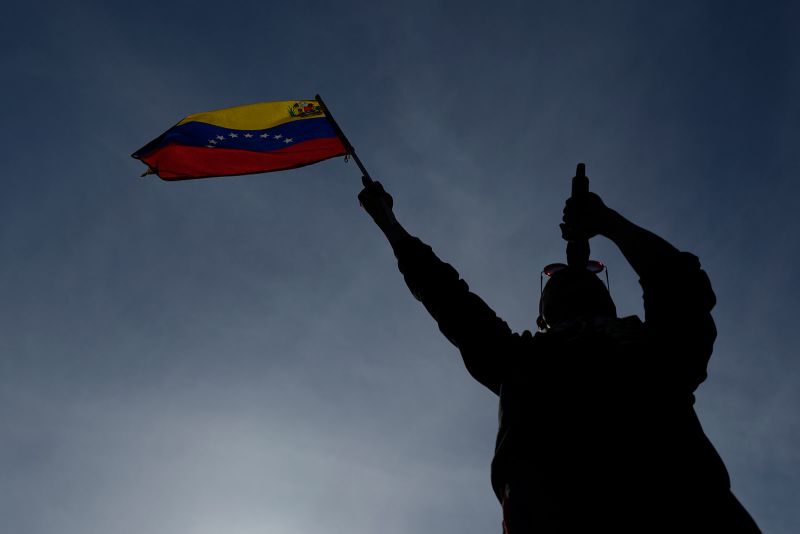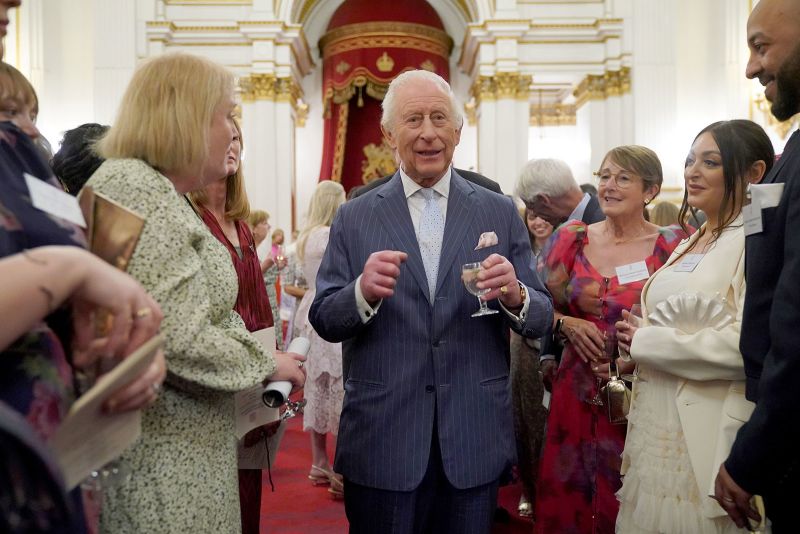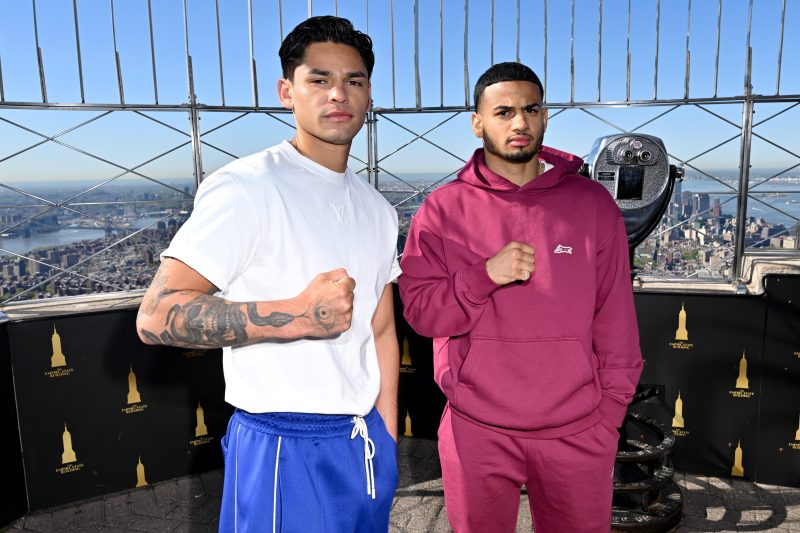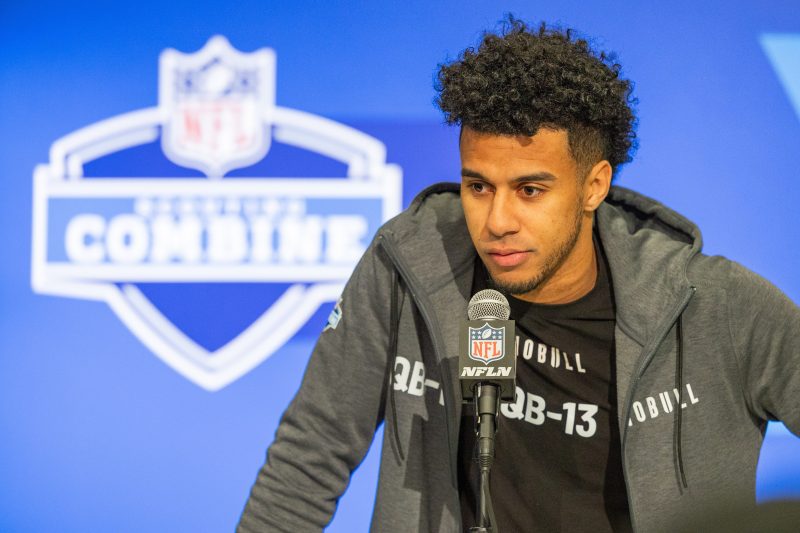First Canada, now Australia? Conservatives fear the Trump slump is spreading
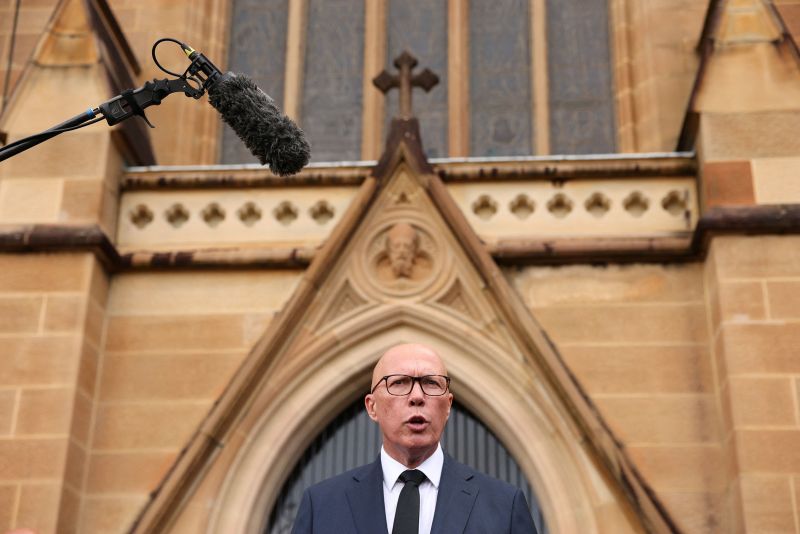
The man vying to become Australia’s next prime minister has spent weeks trying to distance himself from comparisons to US President Donald Trump.
“I’m my own person,” opposition Liberal Party leader Peter Dutton insisted, when asked for his thoughts on “Temu Trump,” the label given to him by critics referring to the Chinese website with a reputation for cheap copies.
Political analysts say comparisons to Trump have eaten away at any lead Dutton had over incumbent center-left Labor Prime Minister Anthony Albanese, who is topping opinion polls before Saturday’s vote.
Ex-police officer Dutton became opposition leader after the center-right Liberal Party was swept from power three years ago, bringing with him a reputation as the uncompromising strongman of the party’s right wing – a former minister for defense, home affairs and immigration.
He’s been accused of stoking culture wars, claims Australia takes in too many migrants, and days ago branded the nation’s public broadcaster “hate media.”
“His instincts are those of a right-wing populist. I have no doubt about that, so they do bear resemblance to the kind of politics and rhetoric we’ve associated with Trump,” said Frank Bongiorno, professor of history at the Australian National University.
The Trumpian strategy appears to have been encouraged by senior party members and Australia’s richest woman, mining magnate Gina Rinehart, who attended the US president’s inauguration and backs his “drill baby drill” mantra, according to reports from 2024.
But what sounded like a vote winner backfired when the US president announced global tariffs, turning a prospective Trump bump into a Trump slump – something Canada’s conservatives also experienced this week when they failed to win the national election.
Dutton also faces the potential ignominy of losing his own seat in parliament, as happened to Canadian Conservative Party leader Pierre Poilievre. Dutton holds Dickson, a constituency in the outer suburbs of Brisbane, by just 1.7% – and rivals are circling.
Australia is seeing “a diluted version” of the Canada trend, according to Marija Taflaga, director of the Center for the Study of Australian Politics at the Australian National University.
“Trump has essentially created a rally around the flag effect,” she said. “In liberal democracies like Australia and Canada, (he’s) flipped the incumbent from being in a disadvantaged position… into an advantageous position,” she added.
“Better the devil you know.”
‘The election pivoted’
The most blatant grab for Trump supporters comes from mining billionaire Clive Palmer, of Titanic II fame, who launched Trump-inspired party the Trumpet of Patriots, vowing to “end the two-party duopoly and make Australia great.”
For the most part, Australian elections are a competition between Dutton’s Liberal Party and Albanese’s Labor Party. Compulsory voting and a preference system that redistributes votes cast for candidates that fall out of the race mean both parties focus on securing the maximum middle ground.
The main issue this election has been the cost-of-living crisis, and both major parties have promised to help lower household bills with an array of tax cuts and handouts.
In a program redolent of Trump’s early moves since returning to the White House, Dutton promised 41,000 federal job cuts, an end to work-from-home privileges and an overhaul of “woke” school agendas – some of which he’s had to roll back.
He also appointed a shadow minister for government efficiency, who told a recent rally the Liberal Party would “make Australia great again” – a comment that she later said she didn’t realize she’d made.
As recently as January, the Liberal leader was on a path to victory, according to Simon Jackman, an honorary professor at the University of Sydney and former chief executive officer of its US Studies Centre.
“Then along comes Donald Trump… and the election just pivoted,” Jackman said.
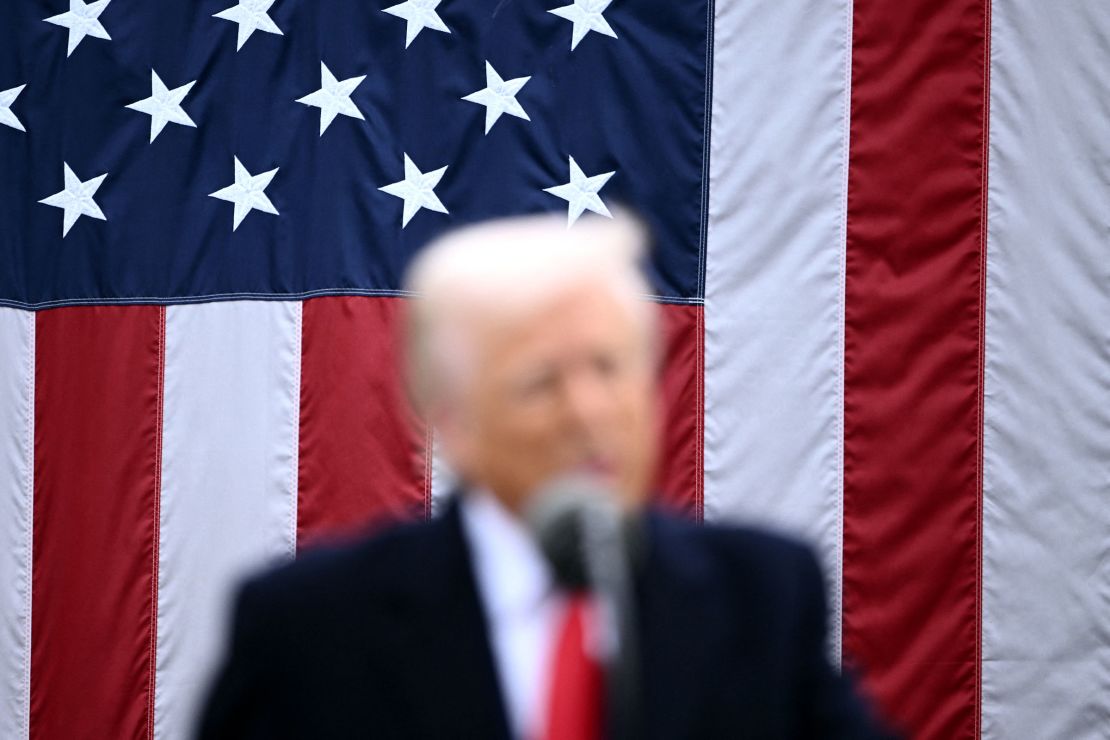
Australians take an avid interest in US politics, so they were watching when the big US pharmaceutical companies complained that the Australian government’s subsidy program was undervaluing US medicines; as US trade advisor Peter Navarro warned that Australian aluminum exports were “killing” America’s aluminum market; and when Democrat Sen. Mark Warner demanded to know why Australia, “an incredibly important national security partner,” had been “whacked” with 10% tariffs.
But it was the post-tariff selling on international markets that really caught their attention, and older voters watched in horror as their retirement savings tracked south, Jackman said.
“The narrative flipped from being sort of looking backwards at Labor’s economic performance to looking forward and (saying), ‘Oh my goodness, the world is very different and dangerous and insecure, and our closest ally and strategic partner is saying all these horrible things about us. I thought the Americans liked us. What’s going on?’” said Jackman.
The Trump backlash presented an issue for Dutton. So, in mid-April, when asked by the moderator during a leaders’ debate if he trusted the US president, he seemed keen to put some distance between them. “I don’t know Donald Trump; I’ve never met him,” he said.
Easing off the China threat
During the last election in 2022, China was seen as the bigger issue.
Relations had suffered under the previous Liberal Party leader Scott Morrison, who led a Coalition government with the National Party and suggested China be investigated for its role in the spread of the Covid pandemic. In response, China slapped tariffs on key Australian exports. While Labor touted its desire to improve relations, the Liberal Party talked up China’s military threat and subsequently lost the votes of Chinese-Australians.
So, this election, despite the unprecedented circumnavigation by Chinese warships of Australia in February and March – complete with unannounced live-fire drills – discussion of China’s threat to Australia’s national security has been relatively subdued.
“Funnily enough, Trump is probably seen as a bigger threat to the global order than China,” said Jackman.
The US president’s unpredictability, transactional approach to foreign affairs, and readiness to rip up past agreements has focused attention on whether Australia can trust the US under Trump.
Critics of AUKUS, Australia’s key security deal with the US and United Kingdom, have cited the president’s recent behavior as proof that it’s too dangerous to outsource the country’s national security.
“Donald Trump is a dangerous demagogue and is a threat to peace, a threat to democracy, and is also a threat to Australia,” said Adam Bandt, leader of the Greens, Australia’s third-largest party, which is pushing for more housing, support for renters and stronger climate action.
Both Albanese and Dutton signed up to AUKUS and have defended the defense agreement.
A possible minority government
While polling suggests Albanese will win the election, it’s unclear if he’ll gain enough votes for a majority government, and analysts say it’s possible he’ll have to form a minority government with smaller parties or independents.
This year, for the first time, Millennial and Gen Z voters will outnumber older demographics, and they’re expected to cast a more progressive, anti-establishment vote that could cost Labor seats.
“Young renters who earn more than their parents but cannot afford to buy the house they grew up in have little reason to preserve the existing political order and appear happy to roll the dice on a minority government,” Shaun Ratcliff, a political scientist from research firm Accent Research, told the National Press Club last week.
Bongiorno from the Australian National University says that, if Dutton loses, he can’t blame the loss entirely on Trump. The Liberal campaign was ill-prepared and relied on voters being angry enough with Labor to want change, he said.
“It hasn’t been a disastrous government, and I think it was probably a mistake for the Coalition to imagine that it could simply wait around and watch it fall over,” Bongiorno said.
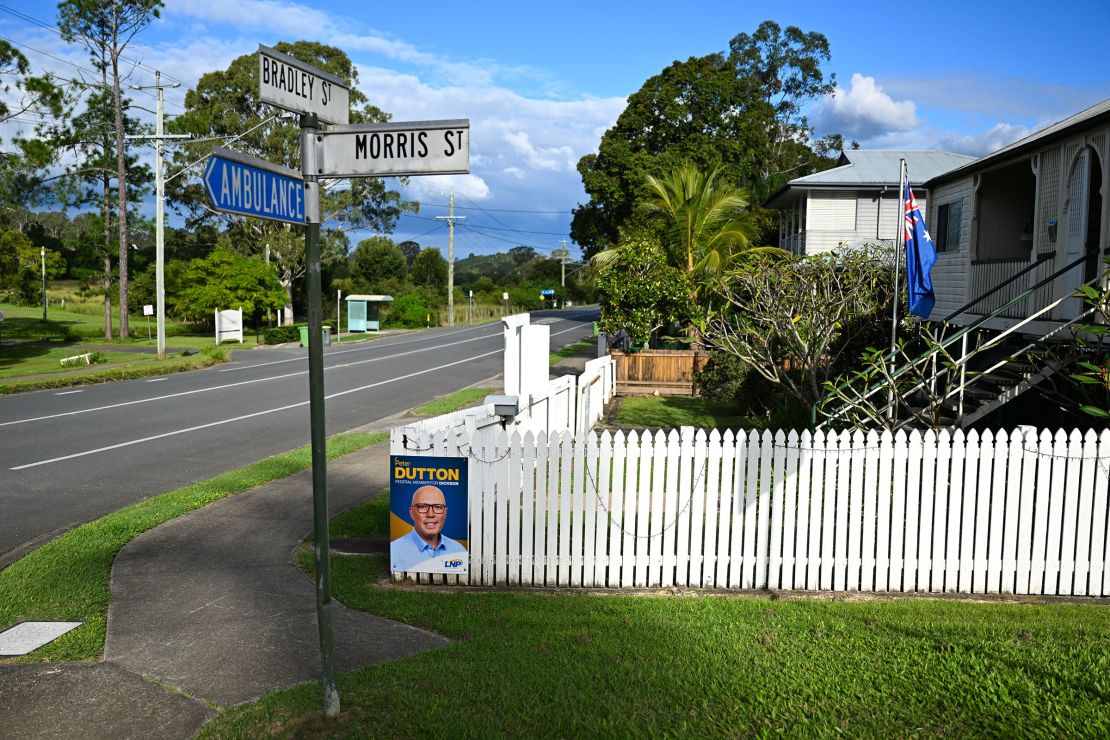
As for Dutton’s challenge in Dickson, the seat he’s held for more than 20 years, Bongiorno said the demographics of the area seem to be changing, and that may steer votes towards Labor’s Ali France or progressive independent Ellie Smith. “I suspect he’ll hold on,” Bongiorno said.
The last of 18 million registered voters are expected to go to the polls on Saturday after a record turnout at early-voting centers.
Jackman said he didn’t get the feeling that people were voting with “gusto” to remove the government, as they did three years ago to oust Morrison.
“Sometimes it signals, ‘Oh, I can’t wait to get rid of this government,’” Jackman said. “I don’t get that same vibe this time,” he added. “I suspect it’s more just people want to get it over with.”
“We knew Trump mark two was going to be different,” he said. “I don’t think anybody counted on just how different.”

